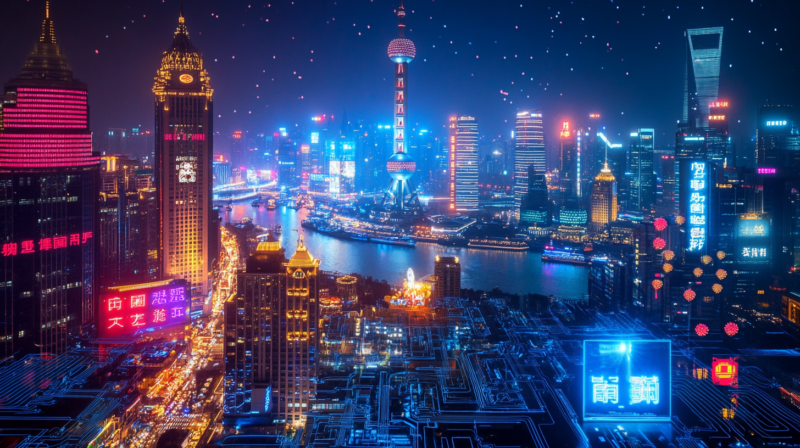Essential Insights
-
AI Cooperation Focus: Chinese Commerce Minister Wang Wentao and Nvidia CEO Jensen Huang discussed enhancing artificial intelligence collaboration, signaling renewed interest in the sector amid geopolitical tensions.
-
Commitment to Investment: Wang reiterated that China’s policies to attract foreign investment remain unchanged and emphasized the country’s expanding market potential for multinational firms, including Nvidia.
-
Nvidia’s Market Resumption: Following US government assurances, Nvidia announced plans to resume sales of its H20 chips in China, which had faced export restrictions, showcasing the company’s adaptability to regulatory environments.
- Strategic Partnerships: Huang underscored Nvidia’s dedication to deepening partnerships with Chinese companies in AI, highlighting the attractiveness of the Chinese market for innovative technology solutions.
The Intersection of AI and Foreign Investment
Jensen Huang, CEO of Nvidia, recently met with China’s Commerce Minister Wang Wentao. This meeting focused on artificial intelligence (AI) cooperation and foreign investment. It came shortly after Nvidia announced that it would resume sales of its H20 chips to China. Wang emphasized that China’s commitment to attracting foreign investment remains robust. The statement from the ministry indicated that the country is eager to welcome multinational companies. This eagerness suggests a willingness to strengthen economic ties and mutual growth.
Moreover, Huang recognized the appeal of the Chinese market. Nvidia aims to deepen its collaboration with local partners. This move highlights the significance of adapting to various market needs, thus fostering innovation. It also emphasizes the potential for technological advancement in China. As Nvidia reenters this lucrative market, the company intends to offer high-quality, reliable products to meet customer demands.
A Strategic Partnership in AI Development
Furthermore, the meeting underscores the urgent need for strategic partnerships in AI development. Huang has positioned himself as an unofficial US envoy amidst growing geopolitical tensions. His simultaneous promotion of AI in both Washington and Beijing illustrates the complexity of international relations in technology. While companies like Nvidia navigate these challenges, they also drive significant advancements in the field. Huang’s commitment to AI collaboration in China suggests a dual path: the pursuit of profit coupled with a broader vision for global technology.
Additionally, the approved sales of H20 chips are a crucial pivot for Nvidia. These chips were subject to prior export restrictions. The U.S. government’s assurance of license approvals facilitates Nvidia’s return to this essential market. This development could spur innovative projects and provide companies access to cutting-edge technology. Such advancements not only enhance corporate growth but also contribute to humanity’s ongoing journey into the AI future.
Continue Your Tech Journey
Stay informed on the revolutionary breakthroughs in Quantum Computing research.
Explore past and present digital transformations on the Internet Archive.
TechV1

